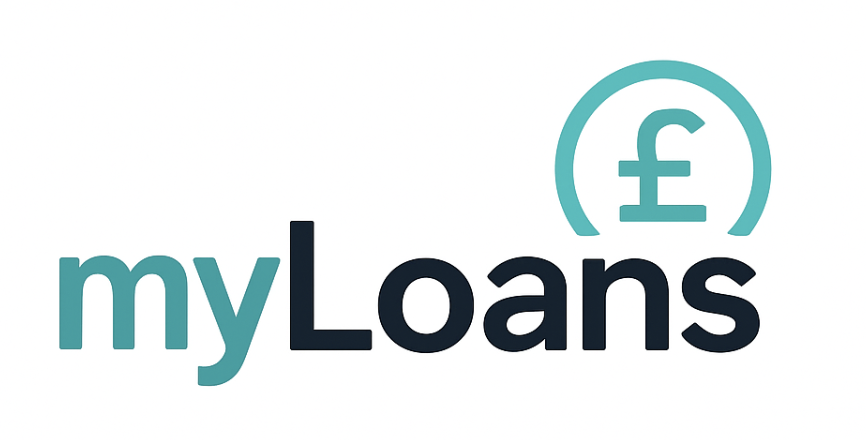If you’re claiming Universal Credit (UC) and find yourself struggling with an urgent expense, you may be able to apply for a budgeting advance or UC loan. These government-backed loans are designed to help people on benefits manage unexpected costs, offering an alternative to payday loans or high-cost credit.
This guide explains everything you need to know about budgeting advances, including who can apply, how much you can borrow, what they can be used for, and how repayments work. We’ll also cover common questions like how long does a budget loan take, how many advances you can have, and how to apply online.
What Is a Budgeting Advance?
A budgeting advance is an interest-free loan offered through Universal Credit to help with essential or emergency expenses. Unlike payday loans or private lenders, you don’t pay interest — you only pay back the amount borrowed.
It is sometimes referred to as a UC loan or a benefit loan, as it is only available to people receiving Universal Credit, Income Support, Income-related ESA, or Income-based JSA.
What Can a Budgeting Advance Be Used For?
You can use a budgeting advance for a wide range of essential expenses, such as:
-
Replacing or repairing household items like a cooker, fridge, or washing machine
-
Travel costs (for example, for job interviews or starting work)
-
Clothing and footwear
-
Rent deposits or removal costs
-
Funeral expenses
-
Unexpected bills or emergency costs
It cannot be used for non-essential spending or to cover ongoing daily expenses like food or rent (except in emergencies).
More details are available on the official GOV.UK Budgeting Advance guidance.
Who Can Apply for a Budgeting Advance?
Not everyone on Universal Credit is automatically eligible. To apply for a UC budgeting advance, you must:
-
Have received Universal Credit, Income Support, income-related ESA, income-based JSA, or State Pension Credit for at least six months (exceptions apply in emergencies)
-
Have earned less than £2,600 in the past six months if you’re single, or £3,600 jointly if you’re part of a couple
-
Not currently be repaying another budgeting advance
These rules ensure that advances go to those most in need while also preventing multiple overlapping loans.
How Much Budgeting Advance Can I Get?
The amount you can borrow depends on your circumstances:
-
Up to £348 if you’re single
-
Up to £464 if you’re part of a couple
-
Up to £812 if you have children
Your actual advance may be lower if you have existing debts, savings over £1,000 (£2,000 if you’re over 25), or outstanding repayments.
How Do Repayments Work?
Repayments are taken directly from your Universal Credit payments each month. The Department for Work and Pensions (DWP) will agree on an amount to deduct based on your circumstances.
-
Repayments must usually be completed within 12 months (sometimes up to 18 months).
-
If your circumstances change and you can’t afford repayments, you can ask the DWP to review them.
Because it’s interest-free, you’ll only ever repay the amount borrowed.
How to Apply for a Budgeting Advance
You can apply for a budgeting loan or advance in two ways:
-
Through your Universal Credit online account – sign in and choose “apply for a budgeting advance.”
-
By calling the Universal Credit helpline if you cannot apply online.
When applying, you may be asked:
-
Why you need the advance (e.g., budgeting advance reasons)
-
How much you want to borrow
-
Details of your income and household circumstances
The DWP will then assess your application and decide how much you can receive.
For full details, visit the official Apply for a Budgeting Advance page.
How Long Does a Budgeting Advance Take?
The time it takes to receive your advance can vary. In most cases:
-
Decisions are made quickly – sometimes within a few days
-
Payments are usually made into your bank account within 3–5 working days after approval
If your situation is urgent, you may receive the payment sooner.
How Many Advances Can You Have on Universal Credit?
You can apply for another advance once your first one is fully repaid. However, you cannot usually take out more than one budgeting advance at the same time.
There are exceptions if your circumstances change, but in most cases, you must clear your existing UC loan before applying for another.
Advance Payments vs Budgeting Advances
It’s important to distinguish between an advance payment and a budgeting advance:
-
Advance payment – When you first apply for Universal Credit, you may wait up to five weeks for your first payment. An advance payment helps cover this gap. You repay it from future UC payments.
-
Budgeting advance – A loan later on in your claim to help with specific essential costs.
Both are interest-free, but they are used for different purposes.
Other Benefit Loan Options
Alongside budgeting advances, other benefit loan options may be available depending on your circumstances:
-
Budgeting Loans – Available to people on older “legacy benefits” such as Income Support, JSA, or ESA. You cannot get both a Budgeting Loan and a UC Budgeting Advance.
-
Social Fund Loans – In Scotland, Northern Ireland, and Wales, local schemes sometimes provide alternatives to budgeting loans. Check your local authority’s website.
-
Hardship Payments – If your UC is reduced due to sanctions, you may be able to apply for a hardship payment (GOV.UK Hardship Payments).
Can I Get My Monthly Universal Credit Payment Early?
If you’re struggling before your UC payment date, you may be able to get an advance payment of your next Universal Credit instalment. This is separate from a budgeting advance. Contact your UC work coach or call the helpline to discuss.
Frequently Asked Questions
Can I get another advance payment on Universal Credit?
Yes, but usually only after repaying your first advance. Exceptions may apply if your circumstances change.
What can I get a budgeting advance for?
You can use it for household goods, clothing, travel costs, job-related expenses, rent deposits, and other essential one-off expenses.
How do I contact the budgeting advance number?
You can apply or check progress via your Universal Credit online account or by calling the Universal Credit helpline on 0800 328 5644.
How many advance payments can you get from Universal Credit?
You can get an advance payment when you first apply for UC and budgeting advances later in your claim. However, only one advance of each type is usually allowed at a time.
Can I apply for a budgeting loan online?
Yes, if you’re on legacy benefits you can apply online for a Budgeting Loan via GOV.UK. UC claimants should apply for a budgeting advance instead.
Conclusion
A budgeting advance or UC loan can be a lifeline if you’re on Universal Credit and facing an unexpected expense. They are interest-free, relatively quick to process, and can be used for a wide range of essential costs.
Before applying, make sure you understand:
-
The eligibility criteria
-
How much you can borrow
-
What expenses qualify
-
How repayments will affect your future UC payments
By planning ahead and using these government-backed loans responsibly, you can manage financial pressures without turning to high-cost credit.
For further guidance, always check official sources such as GOV.UK – Budgeting Help and speak to your UC work coach for advice tailored to your circumstances.
Alternatives to Payday Loans | Safer Borrowing Options
Payday loans are often marketed as a quick fix for cash emergencies, but they are not the only option available. Whether you’re facing an unexpected bill, car repair, or temporary cash shortfall, there are several alternatives to payday loans that may offer lower...
Payday Loans with Bad Credit | Direct Lender Options
If you’ve been refused credit elsewhere and are wondering whether you can still get a payday loan with bad credit, you’re not alone. Thousands of people in the UK search every month for options like “payday loans with bad credit” or “direct lender payday loans”. While...
Personal Loan Debt Consolidation UK – Is It Right for You?
Juggling multiple credit cards, overdrafts, or loans can be stressful and expensive. A debt consolidation loan allows you to combine everything into a single monthly repayment, often at a lower interest rate. In 2025, UK lenders from high street banks to online...
Emergency Loans UK – How to Borrow Fast in 2025
When an urgent expense hits — like car repairs, medical bills, or a broken boiler — quick access to funds can be essential. In 2025, emergency loans in the UK provide a way to borrow fast, with some lenders offering same-day decisions and payouts. This guide explains...
Top 10 Personal Loan Providers UK 2025 – Rates, Features & Eligibility
The UK personal loan market in 2025 offers more choice than ever, with banks, supermarkets, online lenders, and credit unions all competing for borrowers. The best deal for you depends on your credit score, loan size, and repayment term — but comparing providers side...
Best Debt Consolidation Loans UK 2025 | Top Options
Managing multiple debts can feel overwhelming, especially with credit cards, overdrafts, and personal loans all charging different interest rates. A debt consolidation loan can simplify your finances by rolling everything into one fixed monthly repayment — often at a...
Best Bad Credit Loans UK 2025 – Top Lenders Compared
Having a poor credit score, CCJs, or past defaults doesn’t mean borrowing is out of reach. In 2025, several UK lenders specialise in products designed for people with bad credit — offering smaller loans, flexible repayment terms, and eligibility checks that won’t harm...
Home Repair Loans UK – How to Cover Unexpected Costs in 2025
A leaking roof, broken boiler, or urgent plumbing issue can quickly turn into an expensive problem — often when savings aren’t available. In 2025, home repair loans in the UK provide a way to spread the cost of essential fixes into manageable monthly repayments. This...
Green Energy Loans UK – How to Finance Eco-Friendly Home Improvements in 2025
Eco-friendly upgrades such as solar panels, insulation, heat pumps, and EV chargers can cut energy bills and boost property value — but they require a significant upfront investment. In 2025, green energy loans in the UK provide a way to spread the cost of sustainable...
Moving House Loans UK – How to Cover Relocation Costs in 2025
From deposits and removal vans to solicitor fees and new furniture, moving house in the UK can quickly add up to thousands of pounds. Not everyone has savings set aside to cover these costs upfront. In 2025, moving house loans in the UK provide a way to spread...
Education Loans UK – How to Fund Studies and Professional Courses in 2025
Not all education in the UK is covered by government student finance. Postgraduate degrees, professional qualifications, and private training often require self-funding — with tuition fees and course costs running into thousands of pounds. In 2025, education loans in...
Holiday Loans UK – How to Spread the Cost of Travel in 2025
Holidays can be some of the most rewarding experiences of the year, but they often come with a price tag that’s hard to cover upfront. From flights and hotels to all-inclusive packages and once-in-a-lifetime trips, the costs can add up quickly. In 2025, holiday loans...
Best Personal Loans UK 2025 – Top Lenders Compared
The UK personal loan market in 2025 is more competitive than ever, with high street banks, supermarkets, online lenders, and credit unions all offering products to suit different needs. Choosing the right provider can save you hundreds in interest and ensure...
Medical Loans UK – How to Finance Healthcare Costs in 2025
While the NHS covers most essential treatment, waiting lists, private care, and specialist procedures mean many people face out-of-pocket medical expenses. From dental work and fertility treatment to cosmetic surgery and urgent private healthcare, costs can run into...
Car Loans UK – Personal Loan vs Hire Purchase vs PCP in 2025
Buying a car in 2025 usually means more than just choosing the right vehicle — it also means deciding how to pay for it. In the UK, the three main options are a personal loan, hire purchase (HP), or personal contract purchase (PCP). Each has its own advantages,...
















